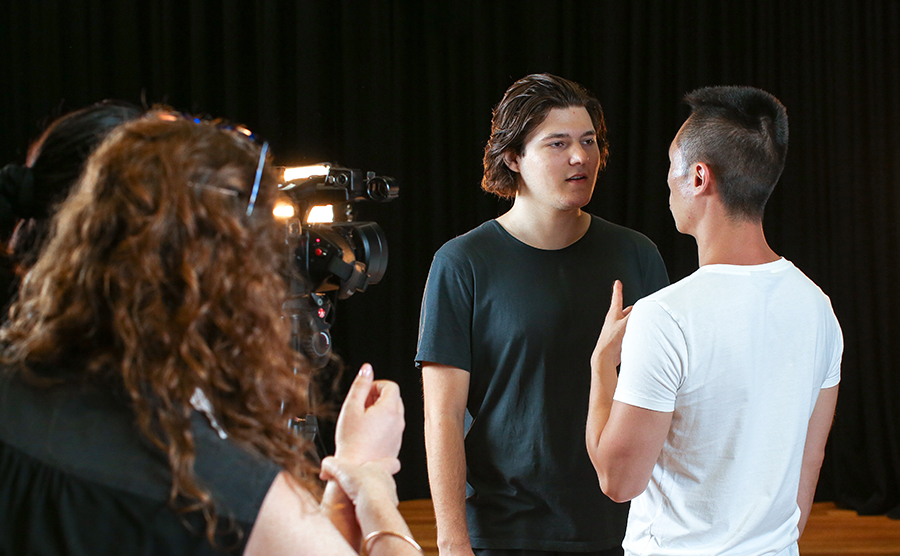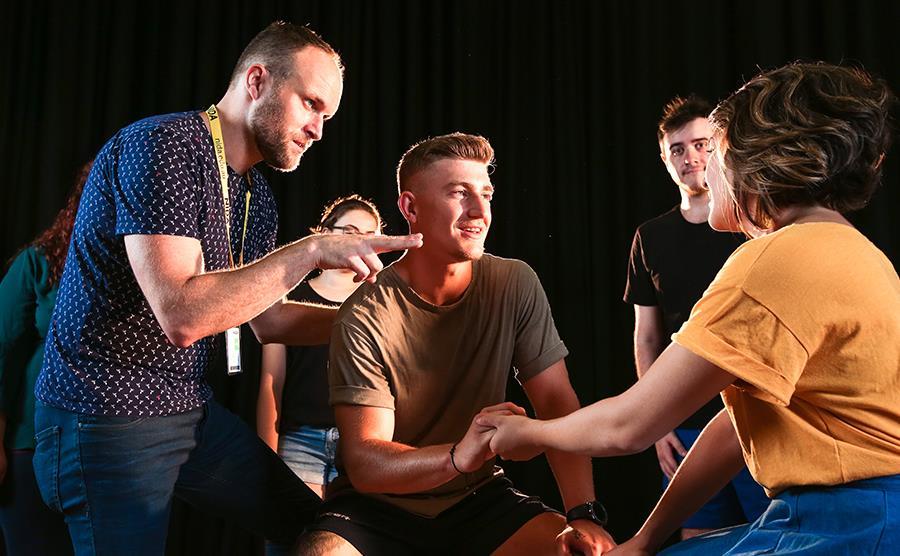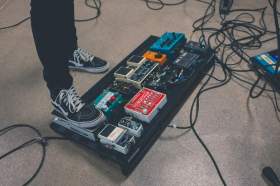‘There are always people who have an idea, but they just don’t quite have the skills to be able to make that idea a reality; to bring that dream or that plan to life,’ said Gillian Meisner-Lemon, Senior Program Manager, NIDA Open.
‘It’s difficult to identify one specific reason why people choose to enrol in short courses. Whether it’s writing a play, making a film or designing an independent theatre production, they need the skills to help them realise their vision.’
Not every person who dreams of making art wants to be a fulltime artist, Meisner-Lemon noted – but everyone deserves the opportunity to hone the tools required for creative expression.
‘Often people are looking for a creative outlet or an escape from other elements in their life. They might work in jobs where they’re sitting at a desk all day, for instance – or they’re looking for some transferable skills, essentially, that they can then integrate into other areas.’
Age is no barrier when it comes to picking up new skills, Meisner-Lemon explained, and points out the experience of a 70-something NIDA Open acting student.
‘Everyone was really encouraging and supportive of her and when she got up to perform her scene work at the end of the week, she had a fan club of fellow students cheering her on. Because here she was, 50 years older than most of them, maybe more. She had always wanted to do a course and had taken that leap,’ said Meisner-Lemon.
LEARNING FROM PEOPLE WHO HAVE BEEN THERE BEFORE
Good adult courses are taught by arts industry professionals, highly skilled and experienced in their chosen field. It means that the students are not learning the theory, but the reality of practice, including the ups and the downs.
‘If someone comes to study documentary filmmaking, they want to know they will be working with someone who is recognised in that field,’ Meisner-Lemon said.
Many adult students come out of a course inspired as much by the other students in the class as the tutor’s knowledge.
‘There’s nothing more rewarding than going into a session at the end of the week or the end of term and seeing all the people in that class being so supportive of each other’s work and championing one other,’ said Meisner-Lemon.

Photo credit: Maja Baska
FLEXIBILITY AND LIFESTYLE
Learning after work means finding courses that suit busy lifestyles. Short courses require an eight-week commitment but a flexible approach to programming means they are accessible to a wide range of participants.
‘We try to program in as many ways as we possibly can so that anyone who is interested can come and do a course with us,’ Meisner-Lemon said.
Options include taking a course over a block of five Saturdays during term times or as a one-week intensive during holiday periods.
Covering a range of disciplines, including acting, musical theatre, directing, writing, design, technical theatre skills and stage management, NIDA Open’s short courses are offered around the country – not just in Sydney, where NIDA is based.
‘We run adult courses in Melbourne, Brisbane and Sydney during term time and holiday periods but we also run courses in Adelaide, Canberra, Perth, Townsville and Darwin at other periods during the year,’ said Meisner-Lemon explained.
‘As well as being professionals in their own right, our teachers are all people who have a passion for teaching and for learning, and for passing those skills on to other people. They’re incredibly nurturing and incredibly patient; they’re really good at invigorating people’s passions,’ said Meisner-Lemon.
Make the decision and register for your your term class. Melbourne classes run 3 February – 29 March. Sydney classes run 8 February – 2 April. Brisbane classes run 8 February – 29 March. Adelaide classes run 8 February – 29 March.





